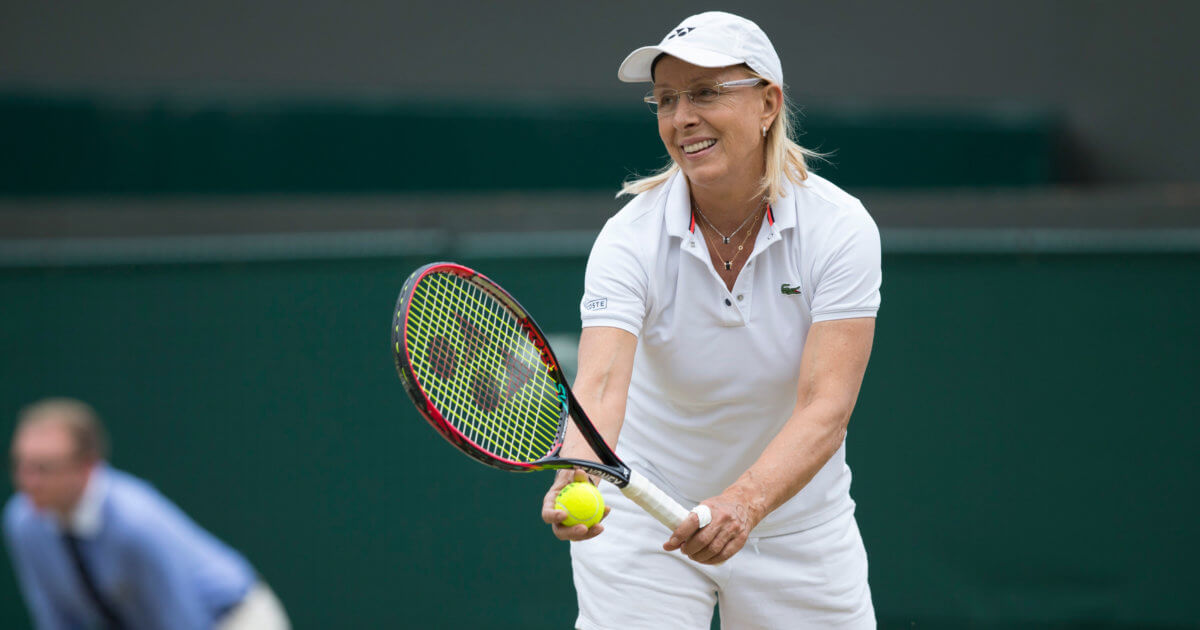Tennis great Martina Navratilova is opening up about her successful battle with breast cancer as part of a British television benefit in which she and some UK television personalities will strip naked in a benefit encouraging women to get screened for cancer.
"Sometimes I feel like I lucked out, I had the 'good cancer' — if ever there was an oxymoron,” she says on the program, titled “The All New Monty: Ladies Night”.
Read MoreBack when she was actively fighting cancer in 2010, Navratilova told the UK press that "For me the scariest parts were going back to the doctor and getting a mammogram to see if anything else is there…this is only me, I can deal with it, but what hurt me was hurting my mum."
The 53 year old star talked about the “total shock” of being diagnosed with breast cancer in 2010, when she was 44. She describes her cancer as “my personal 9/11.”
"Throughout my decades-long tennis career, I have faced some really tough opponents across the net — Chris Evert, Steffi Graf, Monica Seles, and even the Williams sisters in doubles,” she said. "What I never anticipated was that my toughest opponent would be off the court: cancer.”
Navratilova, who only retired from tennis three years ago, says the cancer “knocked me on my a– … I feel so in control of my life and my body, and then this comes and it’s completely out of my hands.”
SurvivorNet recently spoke to Dr. Elizabeth Comen of Memorial Sloan Kettering Cancer Center, about “stage zero” breast cancer. This conversation was not about Martina Navratilova specifically.
Dr. Elizabeth Comen
Stage zero breast cancer, also known as ductal carcinoma in situ (DCIS), refers to cancer that's confined to the breast milk duct. There are two important facts about DCIS breast cancer:
1. It doesn't spread to other parts of the body.
2. The risk of death is essentially zero.
Among breast cancer doctors there is some debate about how to treat DCIS. Some doctors don't even consider it a cancer, but rather a collection of abnormal cells or a pre-cancer, which is why some women opt for a watch and wait approach. Others may recommend the surgery route which usually involves a lumpectomy and potentially radiation as well. This somewhat more aggressive treatment (which is the standard protocol at major cancer centers) does have side effects, and potentially, long term effects. You should ask your doctor about the very large study going on which is comparing outcomes and long-term impact for treatment vs. watchful waiting in stage zero breast cancer.
Less commonly, doctors and their patients will decide on more aggressive approaches depending on the amount of DCIS in the breast and a woman's specific risk factors for a future breast cancer. One reason some doctors may want to remove DCIS is if a biopsy reveals any evidence that a more invasive breast cancer could be present.
The good news about DCIS: it's usually always treated successfully (many oncologists do use the word cure in this situation), and you can take some time to digest the options, and then make a decision that's right for you.
Learn more about SurvivorNet's rigorous medical review process.


